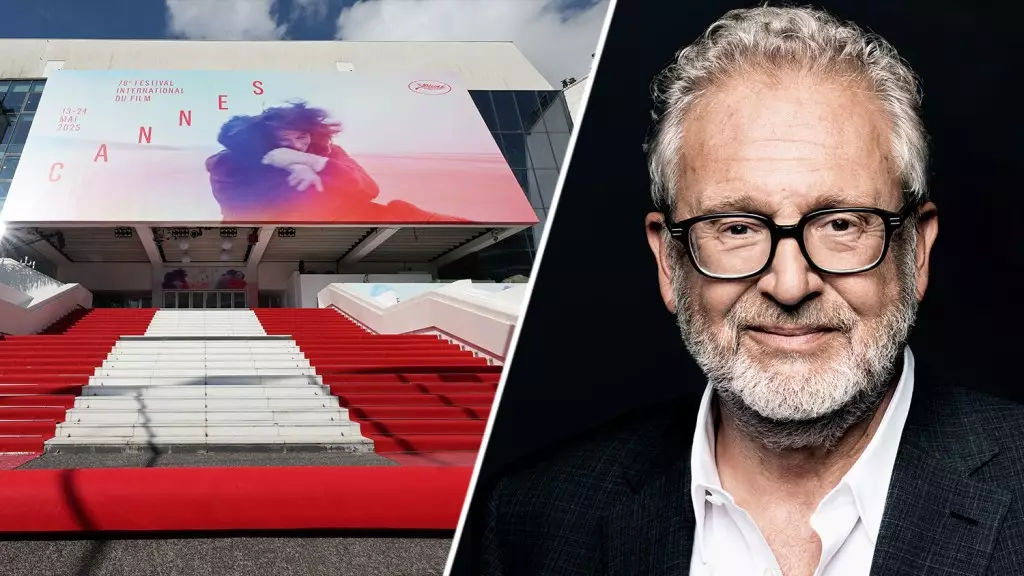The Cannes Film Festival has long been regarded as a barometer of the film industry—where dreams are realized, and the landscape of cinema is shaped afresh each year. Yet, every May, a paradox arises amidst the glamour: a chorus of criticisms emerges from industry veterans and newcomers alike. Martin Moskowicz, a seasoned figure with close to five decades immersed in the cinematic world, provides intriguing insights into this duality. As he departs from his role as CEO of Constantin, his reflections on the festival’s dynamics reveal a critical tension between nostalgia and innovation.
Attendees are quick to voice their grievances: from the perceived scarcity of quality films to inflated prices that potentially exclude many talented storytellers. Complaints about the unbearably mediocre coffee and the unpredictability of the weather are almost ritualistic in their repetition. These lamentations, while affirming a shared communal experience, mask an underlying truth: the festival is a microcosm reflecting broader shifts in the industry.
The Transformative Power of Cinema
What makes Cannes pulse with relevance amidst the shifting tides? Moskowicz aptly points to its inherent ability to adapt and reinvent. The convergence of technology and storytelling has transformed the film landscape into a vibrant digital marketplace, forcing traditional models to evolve. Streaming platforms have emerged as formidable players, reshaping how films are produced, distributed, and experienced by audiences. Yet, it is this very upheaval that compels filmmakers to push boundaries, explore fresh narratives, and engage with societal issues in more profound ways.
The selection of Mascha Schilinski’s film, “In die Sonne schauen (Sound of Falling),” for Cannes’s Official Competition showcases this capacity for boldness. The festival has shifted from mere recognition of established voices to actively seeking innovative filmmakers who challenge the status quo. Such choices underscore the festival’s commitment to artistic excellence and its role in nurturing unique perspectives—a characteristic that continues to define Cannes amid a rapidly evolving industry.
The Market is Our Canvas
Moskowicz’s assertion that “the market is what we make of it” resonates deeply. Unlike consumer products that adhere to well-defined demand curves, cinema thrives on creativity and the unpredictable nature of storytelling. The responsibility lies with creators and distributors to shape the market landscape through the films they choose to produce and promote. This further reinforces the idea that bold storytelling is not just a luxury but a necessity; to restrain artistic expression is to risk stagnation.
If we, as industry professionals, center our focus on crafting original and emotionally resonant films, the audience will inevitably respond. Those drawing back from risk risk falling into irrelevance. In a world where numerous distractions vie for attention, the ability of cinema to captivate still holds immense power. Audiences crave narratives that resonate with their own experiences, and emerging filmmakers hold the key to unlocking these vital connections.
The Importance of Perspective
While it is easy to become ensnared in the myriad challenges of the festival—its logistical nightmares, the relentless pace, and the cacophony of voices—it is essential to maintain a holistic view of the industry’s trajectory. Cannes is not merely an event; it reflects the ongoing dialogue about the future of cinema. Behind the glitzy façade lies a community grappling with uncertainties yet propelled by a shared passion.
The ambition to present cinema that not only entertains but provokes thought is noble. As Moskowicz implies, we must strive for consistency between our ambitions and our outputs. The nostalgic reverence for Cannes should not obscure its potential to become an incubator for future innovations, a space where filmmakers can inspire each other and the world around them. Each festival year offers not just an opportunity to showcase completed works, but a call to action—a chance to cultivate a culture of boldness and creativity.
In a time marked by uncertainty, Cannes remains a beacon of potential, a space where filmmakers can explore fresh ideas without compromise. This is where the future of cinema is forged, and it is up to all of us to embrace that challenge with open arms.

